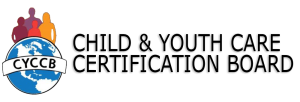Certification Process
 The Child & Youth Care Certification Board provides an assessment process and certification to child and youth care practitioners who demonstrate their commitment to high standards of care and commitment to ongoing competence development. The CYC certification program is the most rigorous demonstration of competence in the field.
The Child & Youth Care Certification Board provides an assessment process and certification to child and youth care practitioners who demonstrate their commitment to high standards of care and commitment to ongoing competence development. The CYC certification program is the most rigorous demonstration of competence in the field.
Steps in the Certification Process: CYCCB uses a multi-method approach to competence demonstration. Certification is awarded to candidates who successfully demonstrate their CYC competence through completion of all the steps listed below:
- STEP ONE – CHOOSE LEVEL
Determine which certification level best describes your experience, training/education and level of competence. Choose the highest level at which you qualify. Practitioners can apply at any of the three CYC certification levels: Entry(CYC), Associate (CYC-A), and Professional (CYC-P). It is not necessary to complete certification at a lower level before applying at a higher level. The Entry and Associate Levels are not available in Canada. - STEP TWO – TEST
Schedule and complete testing with a passing score. Practitioners are typically able to pass the situational judgement exam at the highest level for which they qualify. - STEP THREE – COMPLETE APPLICATION
Complete an application form for the level chosen and provide supporting documentation. This includes documenting: 1) minimum requirements of education, experience & training; 2) provision of colleague references & supervisor assessment; 3) proof of membership in a professional association; 4) agreement to abide by ethical standards; and 5) confirmation of eligibility to work with children, youth & families. - STEP FOUR – COMPLETE PORTFOLIO
Complete a written portfolio (professional level only). - STEP FIVE – RENEW CREDENTIAL
Renew certificate on a two-year cycle.
Application Forms: Each certification level has its own set of application forms. Use the forms for the level you choose. Downloading forms from the CYCCB website assures you are using the most up-to-date editions of each form.
Fillable PDF forms can be downloaded into your device. These allow you to easily type your responses in the fillable blanks on the forms using a keyboard. These can be sent to CYCCB either electronically or printed and sent by mail or scan. Please change the file name so we can identify the form as yours (i.e., e-Associate Level Application Jane Smith.pdf). Be sure to keep a copy of the file for your records.
ENTRY CYC CERTIFICATION FORMS
FILLABLE PDF FORMS
ASSOCIATE CYC-A CERTIFICATION FORMS
- Associate Level Application
- Associate Level Colleague Reference
- Associate Level Supervisor Assessment
PDF FILLABLE FORMS
- e-Associate Level Application
- e-Associate Level Colleague Reference
- e-Associate Level Supervisor Assessment
PROFESSIONAL CYC-P CERTIFICATION FORMS
- Professional Level Application
- Professional Level Colleague Reference
- Professional Level Supervisor Assessment
- Professional Level Portfolio Template
- Professional Level Portfolio Guidelines
- Professional Level Extension Form
PDF FILLABLE FORMS
- e-Professional Level Application
- e-Professional Level Colleague Reference
- e-Professional Level Supervisor Assessment
- e-Professional Level Extension Form
CYCCB encourages individuals seeking employment to research the education and experience requirements of prospective employers as they vary by region and organization. Many offer increased opportunities and benefits to CYC certified practitioners.
CYC Certification levels are recognized by the Council on Accreditation (COA) as qualification for many positions. Check the standards that apply to your program at the COA website.
If you are interested in learning more about accreditation for academic programs, visit the Child & Youth Care Educational Accreditation Board of Canada. CYCCB is a founding supporter of the CYCEAB.
Provisional Certification
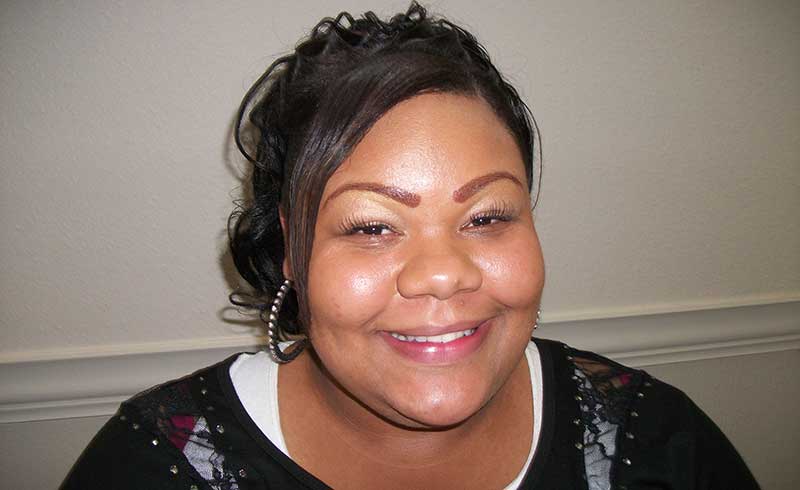 Provisional certification is available to support part-time workers and students who are graduating from college and university programs based on the five CYC certification competency domains.
Provisional certification is available to support part-time workers and students who are graduating from college and university programs based on the five CYC certification competency domains.
Provisional certification is available at the Entry Level, Associate Level and Professional Level. To qualify, practitioners complete all certification level requirements with the exception of experience. Practitioners are granted a 30 month period in which to gain experience so the certificate can be converted to a full certification.
VIRTUAL AND IN-PERSON TESTING
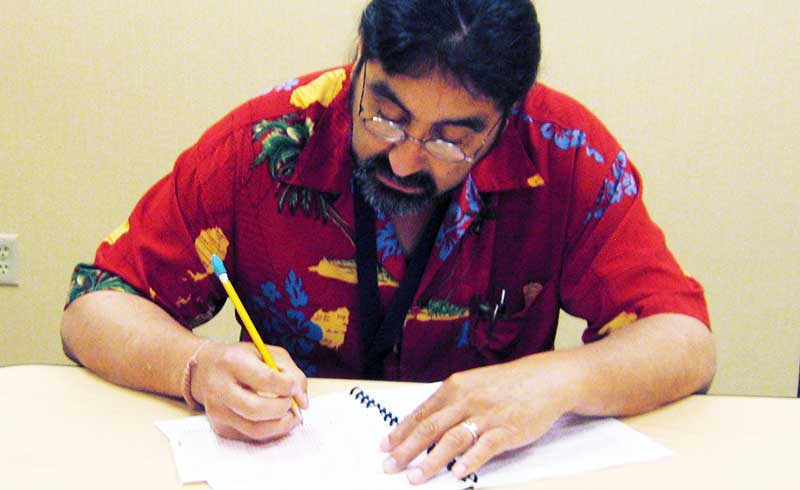 CYCCB offers both proctored in-person testing and virtually proctored on-line testing. In-person testing is offered through the many organizations, universities, and professional associations allied with CYCCB across the US and Canada. CYCCB encourages practitioners to use this method of testing, when possible. For practitioners who are not able to access in-person testing, the virtually proctored on-line testing is available.
CYCCB offers both proctored in-person testing and virtually proctored on-line testing. In-person testing is offered through the many organizations, universities, and professional associations allied with CYCCB across the US and Canada. CYCCB encourages practitioners to use this method of testing, when possible. For practitioners who are not able to access in-person testing, the virtually proctored on-line testing is available.
In-person testing can be scheduled at any of the CYCCB authorized test sites. Find the site closest to your location. Contact the person listed for details on testing available at the site.
The CYC exams are composed of 75-89 questions that relate to scenarios. The scenarios describe practice in a variety of settings including early childhood education, after school, foster, residential and group care, and juvenile justice. The scenarios were submitted by practitioners who described actual practice situations. Each question offers 4-5 possible answers to choose from. One answer is based on correct application of CYC principles and ‘best practices’ to the situation described in the scenario. Sample test questions are available.
Results of the certification pilot studies show that high numbers of the respondents believed that the exams tested important aspects of CYC and that the scenarios and questions reflected realistic practice situations.
Testing sessions are typically scheduled for 3 ½ hour time periods. This allows 30 minutes for registration, orientation to the testing program, and completion of required forms. Practitioners then have an additional 3 hours to answer the exam questions. At the end of the 3 hour period the exam is returned to the proctor and the testing session ends.
Test results are typically sent to the person completing testing within two weeks of the test date. CYCCB does not report test scores; instead the test report informs the practitioner as to whether or not they passed the exam and the percentile in which they performed when compared to all others who have taken the exam.
APPLICATION
Applicants complete the following forms to apply for certification:
- Application for Certification
- Colleague References (2)
- Supervisor Assessment (Entry level uses the Supervisor Reference)
- Electronic Portfolio Guidelines and Template (professional level only)
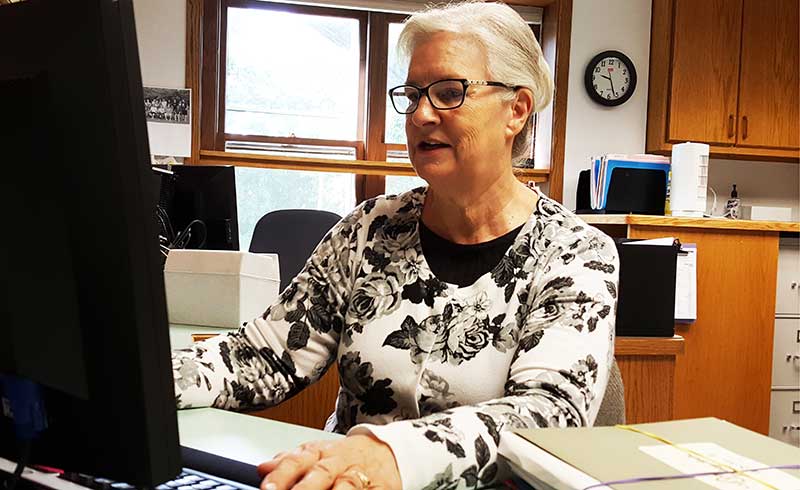 All forms are available in PDF format except the Electronic Portfolio Template, which is available in MS WORD format. The same forms are used in both Canada and the United States. Most forms are available as fillable PDF forms. Either form type can be used.
All forms are available in PDF format except the Electronic Portfolio Template, which is available in MS WORD format. The same forms are used in both Canada and the United States. Most forms are available as fillable PDF forms. Either form type can be used.
The forms were updated in 2018. These forms replace all previous versions in use. The name and version number of a form is included at the top left corner of each form above the page number.
All of the forms are formatted with information displayed along the left margin of each page. This information helps applicants understand requirements and provides additional information regarding options and requirements.
Entry and Associate level applications must be filed within a year of the date of testing. The filing time period cannot be extended. Professional level applications must be filed within 6 months of the date of testing. CYCCB grants a one-time 6-month extension at the Professional level to practitioners who request an extension and pay a $20 administrative fee.
Completed forms and supporting documentation are mailed to the CYC Office, 1212 Orr Street, College Station, Texas 77840-6906, USA. It is helpful to use a shipping method that allows for tracking of the shipment in case it is lost in transit. Although forms are rarely lost in transit, it is wise to keep a copy of all completed forms and supporting documents. Application forms and supporting documentation can be scanned and transmitted to the office electronically. Please check the scans to be sure they are readable before transmitting.
Practitioners engaged in the application process are encouraged to
Certification Fees
The testing fee is paid when testing is scheduled. The fee for application processing is typically enclosed with the application or paid on-line. The extension fee is typically submitted with the application. Payment is accepted in both Canadian and US currency. Check boxes are provided on the first page of the application to document how payment is made. Payment can be made by:
- Enclosing a bank draft, money order, or check made payable to “CYCCB or CYC Certification Board”.
- Electronic payment at www.cyccb.org. If using this method, enclose a copy of the receipt for payment with the application.
- Pre-paid voucher. The voucher number is recorded in the space provided on page 1 of the application. Pre-paid vouchers can be purchased in bulk from CYCCB by contacting the Office.
Current fees are:
Entry Level
Associate Level
Professional Level
- Testing $150 USD, $186 CAD
- Application Processing $170 USD, $211 CAD
- Renewal $70 USD, $87 CAD
- Application Filing Extension $20 USD, $26 CAD
CYC Professional Certification Workbook
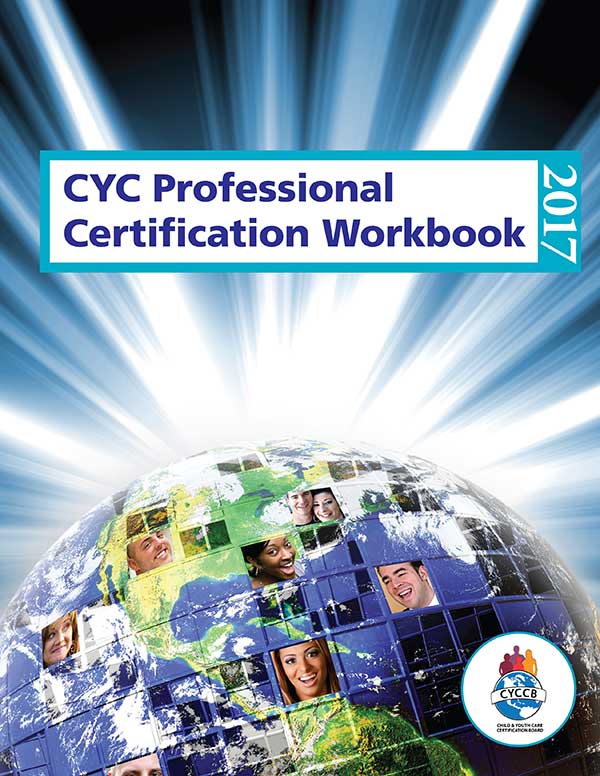 The CYC Professional Certification Workbook is designed to help child and youth work practitioners prepare and apply for CYC certification. It provides a wealth of information in an easy-to-use format.
The CYC Professional Certification Workbook is designed to help child and youth work practitioners prepare and apply for CYC certification. It provides a wealth of information in an easy-to-use format.
It includes information on the history of the CYC certification effort, characteristics of certified practitioners, the testing and application process, forms, costs, and sources for a wide variety ofarticles, publications, and professional development supports useful to CYC practitioners working in any setting. The sections on test preparation and the professional portfolio offer sample exam questions and portfolio responses.
The workbook is in response to the need for a one-stop source of information that addresses applicant questions and needs. Whether you are preparing for testing, completing an application, or simply exploring how to improve your CYC knowledge and skills, this workbook is designed for you.
The workbook costs $40 USD and $81 CAD. Shipping charges are included.
CERTIFICATION HELP WEBINARS
CYCCB offers monthly webinars to help practitioners answer questions regarding the application process. Practitioners can register for a webinar electronically.
REFERENCES
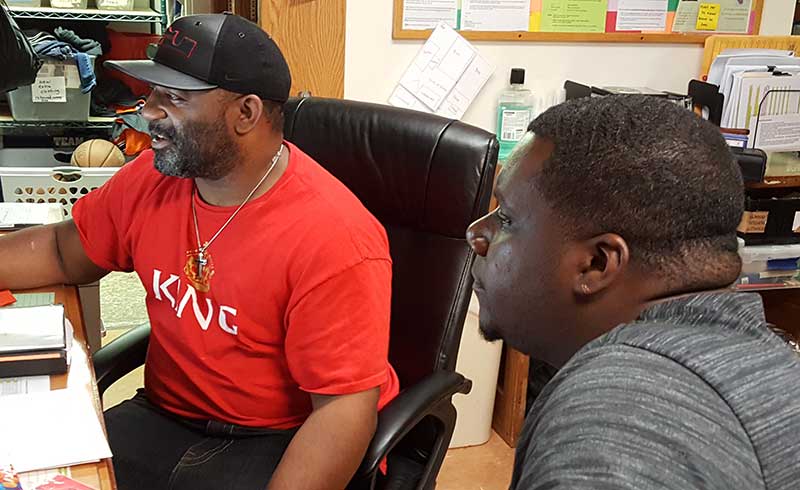 Colleague References and the Supervisor Assessment provide a method for verifying that a practitioner is able to incorporate critical knowledge, skills and ethical considerations into daily practices.
Colleague References and the Supervisor Assessment provide a method for verifying that a practitioner is able to incorporate critical knowledge, skills and ethical considerations into daily practices.
Two Colleague References and one Supervisor Assessment (Entry Level uses a Supervisor Reference) are submitted. The forms are unique to each certification level. These forms are typically mailed or scanned to the CYC Office separately from the application form. This method is used to encourage people submitting reference information to respond honestly without fear that the information submitted will be shared with the applicant. Information submitted on Colleague Reference and Supervisor Assessment forms is not shared with the applicant and is only made available to CYCCB staff processing the application.
It is helpful to check back with your colleagues and supervisor to verify that they have filled out the forms and submitted them to CYCCB. When the Office reviews your application, a notice will be sent to you verifying the documents that have been received. It is the responsibility of the applicant to follow up with colleagues and supervisors to assure submission of the forms.
A check box is included on both the Colleague Reference and Supervisor Assessment where the person submitting the form recommends that the applicant be certified. In some cases the Office may contact the applicant and request that additional Colleague References or another Supervisor Assessment be submitted. This additional documentation will be considered by the application review team. Applications receiving negative recommendations are typically reviewed by the CYCCB Board before being fully-certified.
PORTFOLIO
 Portfolio completion is only required at the Professional Level. The Electronic Portfolio is designed to demonstrate competencies that cannot be assessed by the certification exam, the supervisor assessment or the colleague references. These competencies require practitioners to reflect on their practice and assess their strengths, weaknesses and plans for on-going professional development. The portfolio is a place for the practitioner to document this reflection and information about their practice. In addition, successful completion of the electronic portfolio demonstrates the practitioner’s ability to write professionally (IV4j).
Portfolio completion is only required at the Professional Level. The Electronic Portfolio is designed to demonstrate competencies that cannot be assessed by the certification exam, the supervisor assessment or the colleague references. These competencies require practitioners to reflect on their practice and assess their strengths, weaknesses and plans for on-going professional development. The portfolio is a place for the practitioner to document this reflection and information about their practice. In addition, successful completion of the electronic portfolio demonstrates the practitioner’s ability to write professionally (IV4j).
The practitioner chooses 8 activities from the Portfolio Guidelines to complete. These are written on the Portfolio Template (MS Word file) and sent as an email attachment to the
The portfolio reviewers are CYC-P certified professionals who have significant experience in the field; many work in academic settings. Each reviewer reads the entire portfolio, assesses each activity, and uses the last page of the Portfolio Template to report their findings. If a portfolio does not meet the stated assessment criteria the reviewers provide notations as to which sections are in need of revision. They also provide explicit feedback and suggestions. The Office sends the request for revision, along with the reviewers’ comments, to the applicant. The applicant then makes changes to the portfolio and resubmits their portfolio. When all the items are approved by both assessors, the portfolio is considered complete.
Extensive information and practice activities are included in the CYC Professional Certification Workbook.
Coaches: For some practitioners the portfolio is a significant hurtle. CYCCB offers practitioners access to coaches who can help them through the process. These coaches are assigned by the CYC Office if a practitioner requests one or when a portfolio has not been approved after two rounds of resubmission. Coaches typically work with applicants by phone or webinar, meeting on a weekly or biweekly basis.
TRAINING
Certified practitioners document completion of foundational training in the five (5) CYC competency domains. Hours are documented as clock hours. The number of hours required in each domain varies with certification level.
Training Hour Requirements for Each Certification Level
| Competency Domain |
Entry Level (CYC) |
Associate Level (CYC-A) |
Professional Level (CYC-P) |
| Professionalism | 3 hours (Ethics) | 15 hours | 20 hours |
| Culture and Human Diversity | 15 hours | 20 hours | |
| Applied Human Development | 20 hours | 20 hours | |
| Relationship and Communication | 40 hours | 40 hours | |
| Developmental Practice Methods | 8 hours (Guidance) | 60 hours | 80 hours |
| Other *(not assigned to specific domains) | 70 hours | ||
| Total Hours | 11 hours minimum | 150 hours minimum | 250 hours minimum |
* The ‘Other’ category contains content from any competency domain. List training here where the content is clearly relevant to CYC practice but is not clearly aligned with a specific competency domain or hours listed in addition to the number of hours required in any of the competency domains.
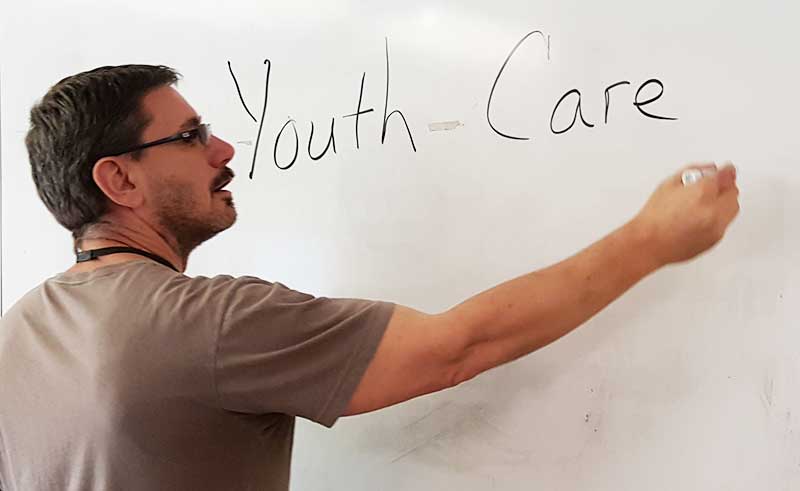 Applicants document AT LEAST the minimum number of hours required. When possible it is best to include more hours in each domain than the minimum number required. This will save time if any of the items included are not accepted by the application review committee.
Applicants document AT LEAST the minimum number of hours required. When possible it is best to include more hours in each domain than the minimum number required. This will save time if any of the items included are not accepted by the application review committee.
It is helpful to compare the title of the training and its content (i.e., learning objectives, course description) to the foundational knowledge and competencies outlined in the Competencies for Professional CYW Practitioners (2010). This will help you determine which certification domain best fits the content.
Guidance training at the Entry Level must have been completed within a year of the date the application was filed. Training hours at the Associate or Professional Level can be completed anytime during the applicant’s lifetime as long as one hundred hours are completed within the 5 year period preceding the submission of the application.
Training and college courses can only be counted in one competency domain. For instance, completion of a 3-credit college level child development course typically includes 48 classroom (clock) hours. This course would be included in the Applied Human Development competency domain. The course would fully meet the 20 hour minimum requirement for that domain. The additional 28 hours cannot be applied to another competency domain.
An exception is made for training and courses that provide a certificate or other evidence that the content spans multiple competency domains. To qualify, the certificate must list competency domains recognized by CYCCB and delineate the number of hours completed in each competency domain.
Training history is listed in the grid provided on the application organized by CYC competency domains.The following are documented for each training attended:
- A title for the training that is clearly relevant to the content domain in which it is included.
- Name and credential of the instructor teaching the content.
- Date of attendance.
- Total number of hours included in the class. These are expressed as clock or actual classroom hours.
Documentation is included to verify that the applicant completed the training claimed. CYCCB accepts a wide range of supporting documentation including:
Training record provided by an employing organization. This documentation must include the applicant’s name, date and title of training, number of hours included, name and credential of instructor. Some type of evidence is included that verifies that the record is an official document issued by an employer. This can be a letter from a supervisor or administrator stating that the record is issued by the employer, or can be a company logo printed as part of the record. In some cases the Office may contact the employer to verify the record.
Certificates of completion. Most conferences, web-based and live seminars, and training venues provide certificates of completion documenting participation and completion. CYCCB accepts certificates that include: 1) the applicant’s name; 2) title of the training; 3) date of training; and 4) instructor name and credential. Letters confirming attendance from the training provider can also be accepted. In some cases the Office may request additional information to verify the authenticity of a certificate or may contact the issuer of the certificate.
College Transcript. The transcript must be issued by a regionally accredited college or university approved to grant degrees. CYCCB will accept a copy of the transcript if it is legible and clearly includes the name of the applicant and issuing institution. Only courses which receive a passing grade can be counted. CYCCB reserves the right to request a certified copy of the transcript, if necessary. One college credit hour is equal to 16 contact hours in most US institutions of higher education. This conversion formula varies in Canadian institutions.
PROFESSIONAL ASSOCIATION MEMBERSHIP
 CYCCB certification includes a requirement for individual membership in a professional association.These provide practitioners with opportunities to collaborate, provide leadership, advocate, and learn with other practitioners. By definition, a certified practitioner is a member of the professional community. Participation in this community is expected.
CYCCB certification includes a requirement for individual membership in a professional association.These provide practitioners with opportunities to collaborate, provide leadership, advocate, and learn with other practitioners. By definition, a certified practitioner is a member of the professional community. Participation in this community is expected.
Proof of membership is submitted with the application. This can be a copy of a current membership card, certificate of membership, receipt for payment or other proof of current membership. The documentation needs to be issued in the name of the applicant and be currently in effect. Organizational membership does not meet the requirement for individual membership.
A wide range of associations are accepted as long as the organization has the following characteristics:
- Offers individual membership (agency membership in an organization does not meet the requirement for professional membership). The practitioner must have an individual membership.
- Supports professionalization of child and youth care practitioners (with the understanding that this can be a passive stance).
- Offers an ethics code for practitioners and/or endorses the Standards for Practice of North American CYC Professionals.
- Represents and advocates for child and youth care practitioners.
- Offers opportunities to: keep up-to-date with developments in foundational and specialized areas of child and youth care practice and participate in education and training opportunities.
In cases where it is unclear as to whether or not an association meets the stated criteria for eligibility, the applicant may be asked to submit a written explanation as to why they believe that the organization qualifies. This may be reviewed by the CYCCB Board before recognition is granted.
CYCCB encourages you to join a local professional association that is relevant to your practice setting and geographic location. Even better, take on a leadership role or join a committee. Membership in both state/provincial and national organizations is recognized by CYCCB.
If you want to support professional child and youth care in the United States and do not have a relevant local organization, we encourage you to consider joining the Association for Child and Youth Care Practice. ACYCP represents CYC practitioners in all practice settings and has provided leadership for the CYC profession for over 40 years.
Examples of Recognized Professional Associations:
Association for Child and Youth Care Practice (ACYCP)
Child and Youth Care Association of Alberta (CYCAA)
Child and Youth Care Association of Newfoundland and Labrador (CYCANL)
National Afterschool Association (NAA)
National Association for the Education of Young Children (NAEYC)
National Association of Social Workers (NASW)
National Foster Family Association (NFFA)
National Partnership for Juvenile Services (NPJS)
Nova Scotia Child and Youth Care Workers Association (NSCYCWA)
Ohio Association of Child and Youth Care Professionals (OACYCP)
Ontario Association of Child and Youth Care (OACYC)
Wisconsin Association of Child and Youth Care Professionals (WACYCP)
